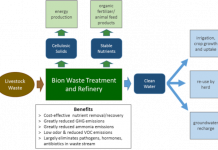Doug Young

China’s increasingly contentious trade relations with Europe suffered another setback late last week, when the EU threatened to fine Chinese airlines that were refusing to comply with a new controversial program to reduce greenhouse gases. China responded with its own threat by saying it won’t accept the EU’s planned carbon tax, raising the prospect of a dangerous new trade war. This latest in a recent series of trade conflicts between China and both Europe and the US is developing into a troublesome pattern that could spin out of control, endangering the nascent global economic recovery. While the West bears some blame for initiating most of the conflicts, China’s approach of angry public denials and refusal to negotiate only makes the problems worse and leaves little room for negotiated settlements.
The latest clash broke out last Thursday, when the EU threatened fines and a ban from its airports for eight Chinese airlines that failed to provide flight information required under Europe’s new greenhouse gas reduction program. (English article) China says the plan violates international law, and has ordered the country’s airlines not to participate.
China responded to the EU’s latest threats by saying that Chinese airlines won’t accept the tax, indicating it has no intention of yielding in the matter. A resulting trade war could ultimately cost Chinese airlines millions of dollars in lost revenue and undermine their competitive position by forcing them to cut back or cancel many of their flights to Europe.
China’s stance of angry defiance was nothing new, since leaders in Beijing have opposed the plan for more than a year since it was first announced. This approach of public anger and behind-the-scenes defiance is fast becoming China’s preferred way for handling a growing number of disputes with both Europe and the US, two of its most important trading partners.
Two weeks ago, the EU moved closer to imposing punitive tariffs on Chinese solar cells after formally launching a probe last year into unfair state support for the sector. The EU has also threatened similar action against Chinese telecoms equipment. In both cases, China’s response has been largely to deny existence of a problem and to threaten retaliatory action.
Meantime, China has also had similar clashes with the US, which has imposed anti-dumping tariffs on Chinese solar cells and banned the import of Chinese telecoms equipment over national security concerns. Again, Beijing’s reaction has been to deny existence of a problem and threaten retaliation.
In all of these cases, signs of grievances by both the EU and US emerged months and sometimes more than a year before the imposition of concrete punitive measures. And yet in all of the cases, China did little or nothing to try to find a solution before the conflicts reached crisis levels.
If China wants to avoid an escalation in these kinds of trade wars, it needs to take a more proactive approach, both publicly through more positive public relations and also behind the scenes by making a real effort to negotiate solutions. A continuation of its current approach of defiance and denial will only result in a growing number of trade wars that hurt everyone and benefit no one.
Bottom line: Beijing needs to take a more positive, conciliatory approach in its trade disputes, or risk a growing number of damaging trade wars.
Doug Young has lived and worked in China for 15 years, much of that as a journalist for Reuters writing about Chinese companies. He currently lives in Shanghai where he teaches financial journalism at Fudan University. He writes daily on his blog, Young´s China Business Blog, commenting on the latest developments at Chinese companies listed in the US, China and Hong Kong. He is also author of a new book about the media in China, The Party Line: How The Media Dictates Public Opinion in Modern China.








